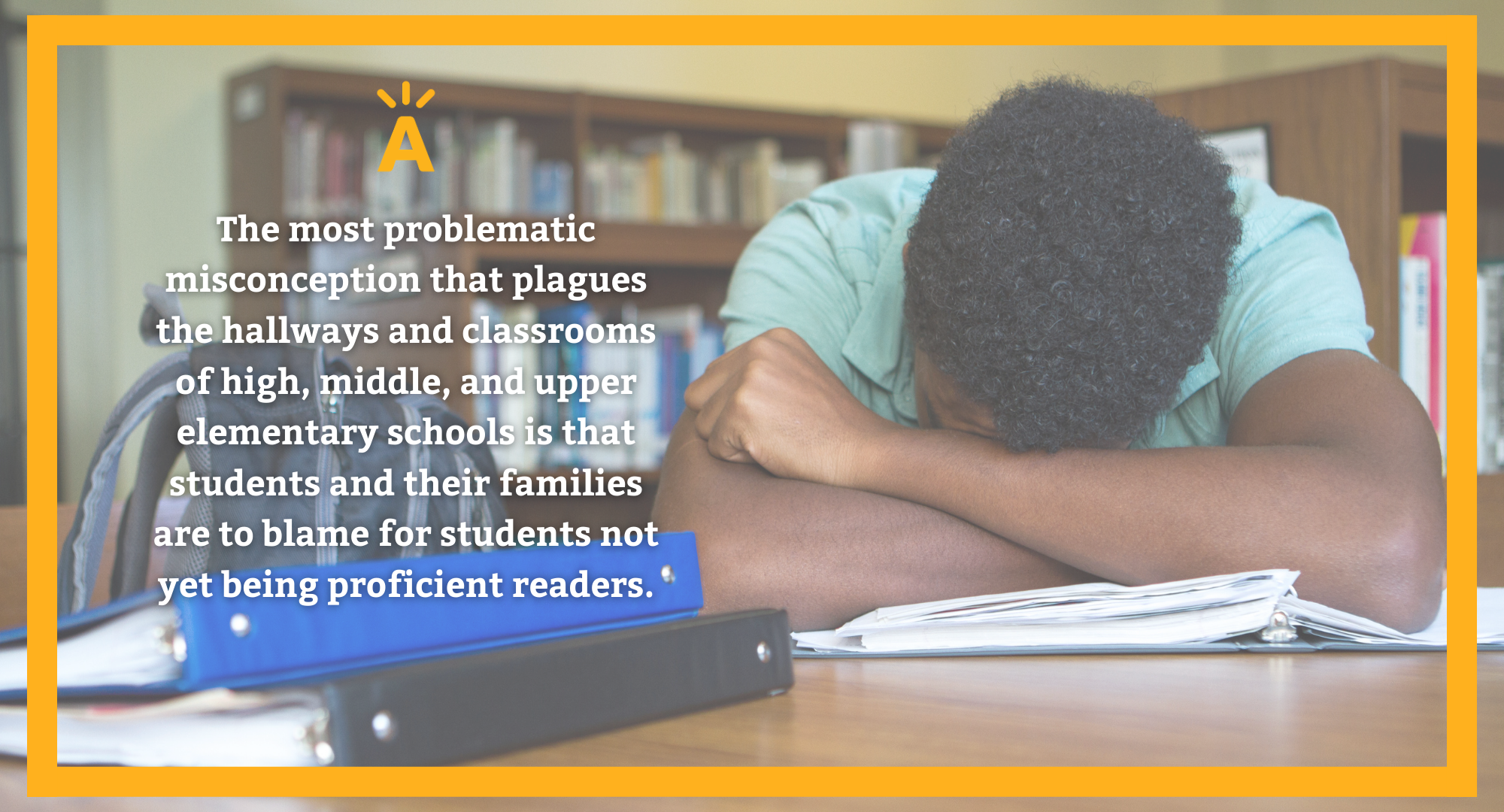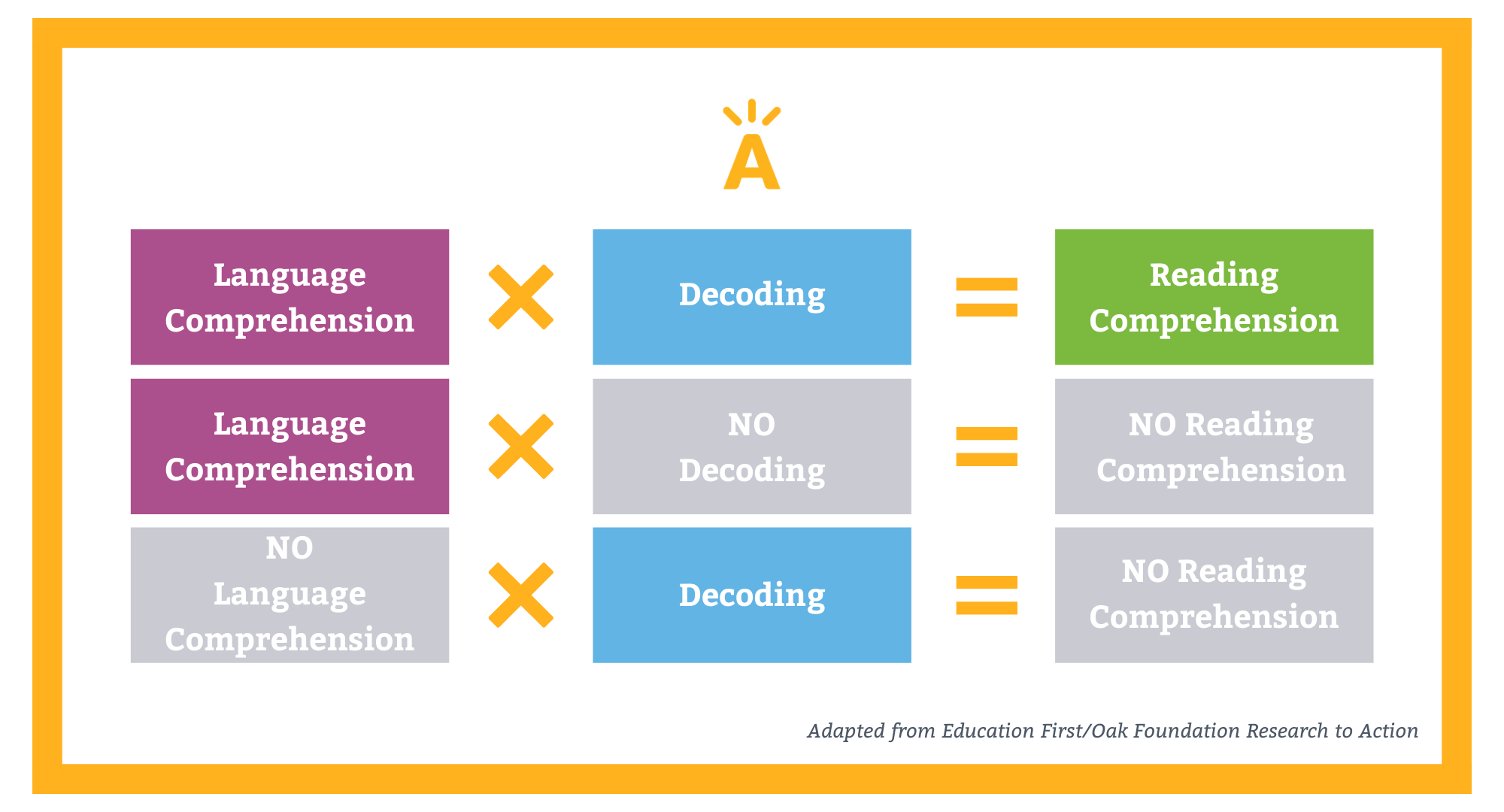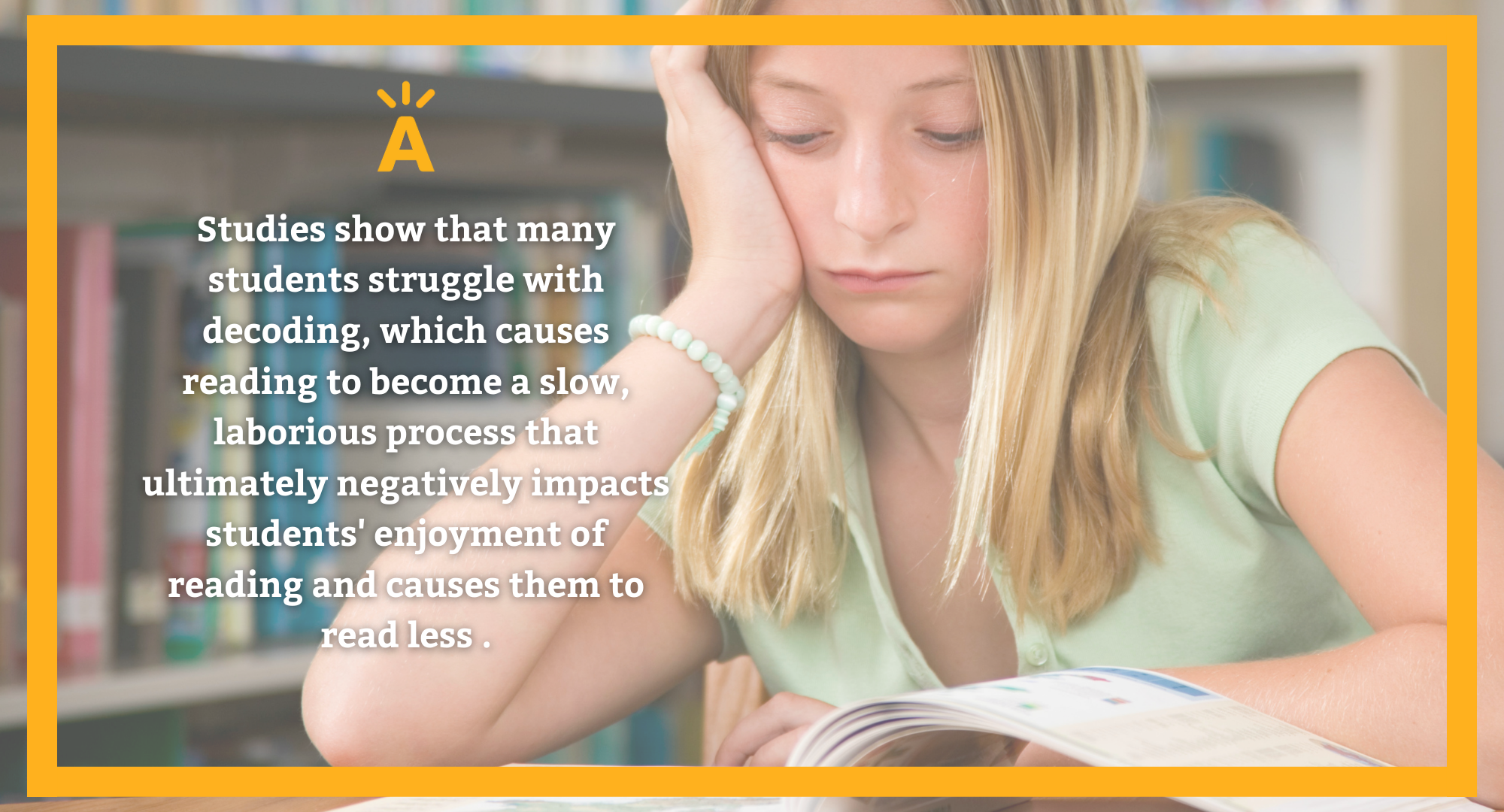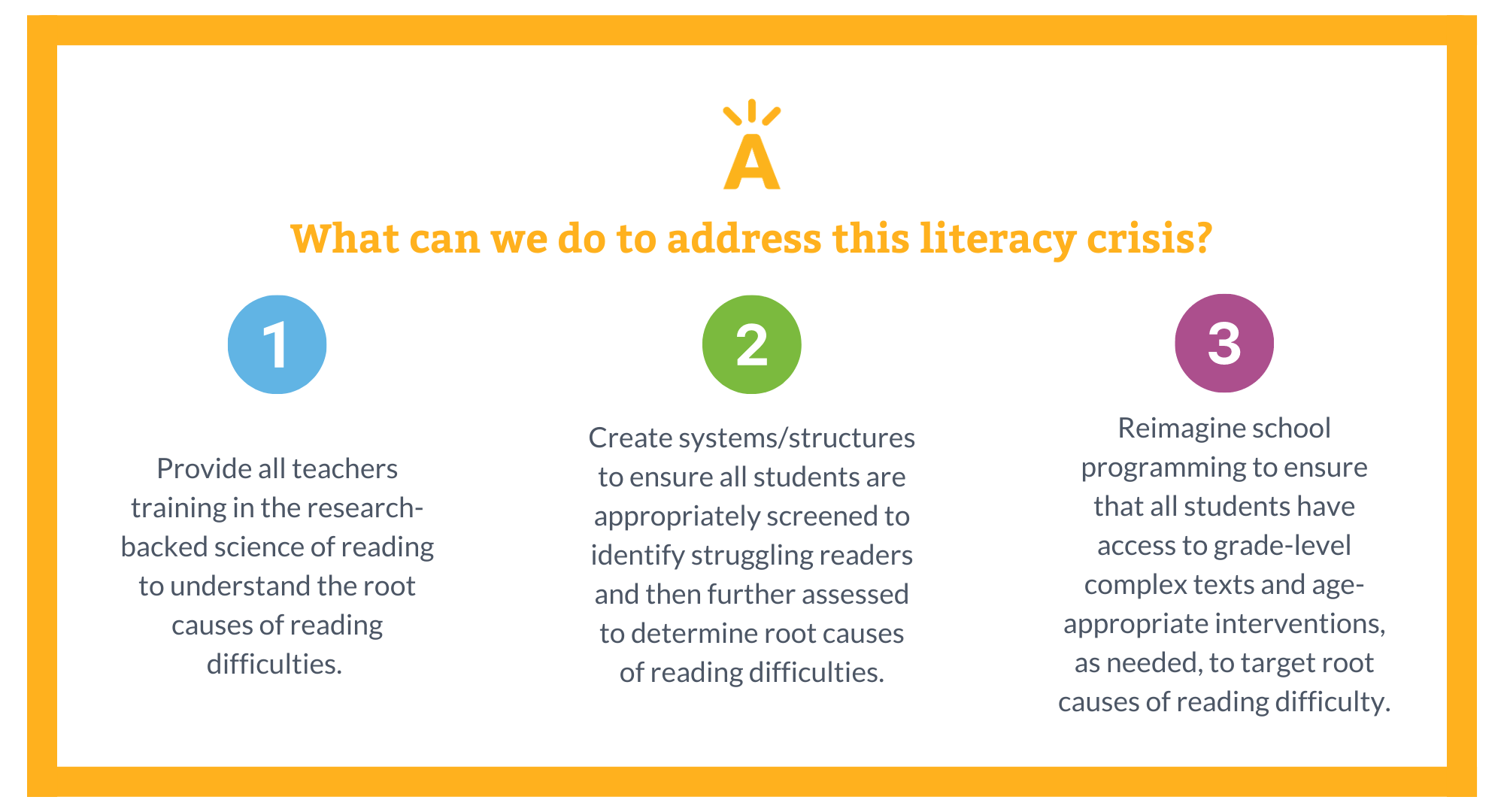By Emily Hofer & Christina Lippert

Emily Hofer, Managing Director of Literacy Content

Christina Lippert, Senior Director of School Support and Foundational Literacy
The alarm bells have been ringing for some time that America’s students cannot read. Yet, most educators cannot pinpoint why this is our reality. While the literacy crisis has certainly been compounded by the ongoing pandemic, it was already evident in 2019 NAEP data that 66% of 8th graders and 65% of 4th graders were not proficient readers (NAEP, 2019).
There is no shortage of misinformation about why students are struggling to read, but the most problematic misconception that plagues the hallways and classrooms of high, middle, and upper elementary schools is that students and their families are to blame for students not-yet being proficient readers.
.png)
Educators may assume that students struggle to read due to “not caring about school” or “not trying.” There are also assumptions that students just “don’t read enough at home” or “their parents don’t value school.” Not only are these dangerously inaccurate assumptions, but they are often made in reference to our most marginalized students: students of color, English learners, and students with learning and thinking differences.
So why do older students struggle to read?
Forty years of research has shown that reading comprehension is composed of students’ decoding abilities and language comprehension skills (Farrell, Hunter, Davidson, & Osenga, 2020). This is referred to as the “simple view of reading” (Gough and Tunmer, 1986) and is often represented by an equation: decoding x language comprehension = reading comprehension. If there is a breakdown in either students’ decoding abilities and/or language comprehension abilities, reading comprehension will be impacted.
.png)
Studies of not-yet proficient readers of all ages have revealed that the overwhelming majority have difficulties stemming from “decoding” (Moates, 2001). This often involves students reading words incorrectly and/or reading very slowly. This makes reading a very laborious and frustrating process. As a result, students who struggle with decoding tend to dislike reading and read less.
.png)
By reading less, students acquire fewer new vocabulary words and build less content knowledge. In turn, this decoding struggle also begins to impact their language comprehension skills. Students who struggle to read have a lower regard for their own academic achievement—referred to as academic self-concept. These students may be more likely to struggle with anxiety and are far more likely not to graduate high school (McArthur, Castles, Kohnen, & Banales, 2016). The effects of being a struggling reader are both immediate and life-long, with a disproportionate impact on marginalized student populations.

What can we do to address this literacy crisis?
Studies find that while it is not easy and may be time-intensive, it is never too late to provide reading interventions to address an older students’ specific reading difficulties (Center on Instruction, 2007).
However, based on our national literacy proficiency data, we know that older readers do not frequently receive the support they need in order to become proficient, grade-level readers. Experts have shared guidance on what and how to provide interventions to older students, but for a variety of factors—likely stemming from the commonly held belief that students and their families are to blame for their reading difficulties—schools and systems have taken limited and/or ineffective action.
In order to provide our older students with the necessary tools to become proficient readers, here are three steps educators must take:
.png)
-
Provide all teachers training in the research-backed science of reading to understand the root causes of reading difficulties.
It is critical that all teachers have a basic understanding of the science of reading in order to understand common root causes of reading difficulties among students. This knowledge empowers teachers to debunk the myth that students are somehow at fault for their reading difficulties. Most importantly, this type of understanding lays a strong foundation for districts and schools building investment and buy-in among educators when seeking to make adjustments to current academic programming to better support not-yet proficient readers. Providing professional development on the science of reading to all educators, including our secondary educators, should be reflected in a systems/schools overarching strategy to ensure more equitable literacy outcomes for all students. -
Create systems/structures to ensure all students are appropriately screened to identify struggling readers and then further assessed to determine root causes of reading difficulties.
Schools and systems vary in their approaches to identifying struggling readers. One common approach is for students to be “flagged” as struggling after many weeks, months, or even years of instruction and assessment. This delayed identification and implementation of support further compounds the problem.
Rather than waiting for failure and hoping we catch struggling students, we must take preemptive measures to screen and identify our struggling readers so that we can take steps to diagnose the root causes of these difficulties. It is important to note that screening students doesn’t necessarily require more data, but rather, proactively analyzing existing data to pinpoint students who might benefit from more diagnosis. -
Reimagine school programming to ensure that all students have access to grade-level complex texts and age-appropriate interventions, as needed, to target root causes of reading difficulty.
“Remediation” has come to be seen as a problematic approach to instruction. The spirit behind that sentiment is admirable: we all want to ensure that students experience rigorous, grade-level instruction. However, it is time we flip the script and re-envision attention to foundational skills in the upper grades as a means to enabling access to grade-level content. We believe that foundational skills remediation should exist in pursuit, not in place of, grade-level content. Where there is a need evidenced in the data, those elements of instruction can—and should—coexist in harmony.
Where does this leave us?
We have blamed students and their families for students’ inability to read proficiently for too long.
It is time for us to fundamentally overhaul the current approaches to foundational literacy instruction across all grade levels in order to redress the misplaced blame and misplaced instruction inflicted upon our older students while simultaneously ensuring that future students receive the proper supports from the start. Further, we must acknowledge the disproportionate impact of this literacy crisis on our students of color, multilingual learners, and students with learning and thinking differences. By grounding ourselves in research and taking actions aligned to the science of reading, we can evolve, redesign and truly provide the necessary support that addresses the root causes of reading difficulties.
Explore more on our foundational literacy page!
Sources
-
Farrell, L., Hunter, M., Davidson, M., & Osenga, T. (2020, October 01). The simple view of reading. Retrieved May 03, 2021, from https://www.readingrockets.org/article/simple-view-reading
-
Gough, P. B., & Tunmer, W. E. (1986). Decoding, reading, and reading disability. Remedial and Special Education, 7(1), 6-10. doi:10.1177/074193258600700104
-
Moats, L. C. (2001, March). When Older Kids Can't Read. Retrieved May 03, 2021, from http://keystoliteracy.com/wp-content/pdfs/orc-adolescent/When%20Older%20Kids%20Can't%20Read.pdf
-
McArthur, G., Castles, A., Kohnen, S., & Banales, E. (2016). Low self-concept in poor readers: Prevalence, heterogeneity, and risk. PeerJ, 4. doi:10.7717/peerj.2669
-
NAEP Reading 2019 Highlights. (n.d.). Retrieved May 03, 2021, from https://www.nationsreportcard.gov/highlights/reading/2019/
-
Scammacca, N., Roberts, G., Vaughn. S., Edmonds, M., Wexler, J., Reutebuch, C. K., & Torgesen, J. K. (2007), Interventions for adolescent struggling readers: A meta-analysis with implications for practice. Portsmouth, NH: RMC Research Corporation, Center on Instruction.
